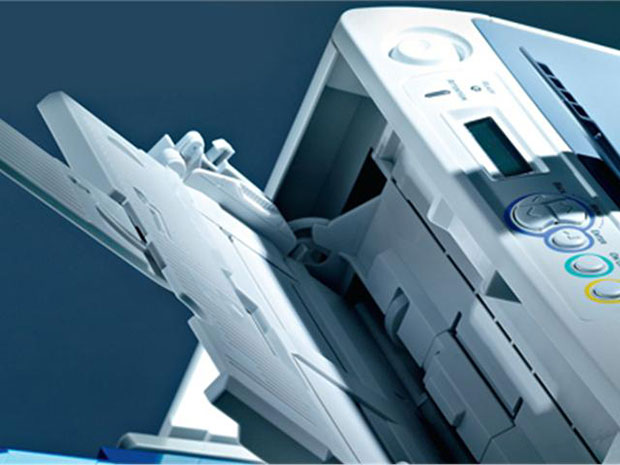With the speed and diversity of printer technology these days, choosing the right print solution for your business can be an intimidating task. If you are looking to streamline multiple business processes and increase overall efficiency then perhaps you should consider investing in a multifunction print unit.
Multifunction printers have the capacity to perform the job of several communication devices from one centralised location, but prior to purchasing it is important to consider the printing needs and requirements of your business as well as making sure a large network printer will mesh nicely with your current IT service.
Connectivity
Most printers have more than one type of port that connects them to the computer. These days, USB ports are the norm. A multifunction office printer can also be equipped with Wi-Fi, which means no more cables. You can connect your printer to your office network using wired Ethernet or wireless options depending on what suits your infrastructure most.
Note that many multifunction printers have no need for a computer to work. These PC-less models help you save on overheads and training. They are also relatively easy to install.
Printing Concerns
The printer is the primary element of your multifunction device so make sure its features and functions are suited for your specific office needs. There are a few points to take into account.
- Duty cycle is the number of printed pages the device is limited to in one month. The most basic printer handles 2,000 prints per month or less. Know your monthly print demands and choose a duty cycle that is higher than that number.
- Capacity is determined based on how long your cartridge and toner lasts. Choose a printer that is high enough quality that it prints enough pages before they need to be replaced.
- Speed is measured in pages printed per minute. If your entire office uses a single printer, then buy one that prints fast. Your work efficiency would lower if your people spend too much time waiting around for print jobs.
- Document quality should be high enough to satisfy everyday use. Print quality should be clear and have no smudges or breaks. If you need printers for presentations, you need to consider colour as well. There are many cheap printers that can produce photo quality prints these days.
- Cost of course, depends on the features that you choose on your printer. Duty cycles and capacity, speeds, and document quality increase as price rises. You also need to think about the continuing expense of paper, replacement ink, and toner.
- Input/Output capabilities should also be noted. This means the paper trays used to hold and catch the printed pages and to store blank paper. Some offices need larger trays and some can make do on standard sizes. For offices with high printing output, you should look into multiple 250 and 500 page input trays.
Scan, Copy, and Fax
Choose printers with faxing capabilities if you need to send documents a lot. If not, then print-scan-copy devices are more efficient. If you really need a fax machine, remember to keep your multifunction device near a phone socket. Choose a scanner that offers at least 600 dpi resolution and scans fast. Your copier will be able to copy in colour if your scanner has the ability as well. The quality of the copier depends of the quality of your printer and scanner.
Automatic Document Feeder (ADF)
This is more related to the scan function than anything else. It allows you to put a stack of documents on the scan device and have them copied and scanned in one go, making bulk scanning a breeze. In addition, you can send multiple faxes easily with an ADF.
Duplex Printing
This feature provides the ability to automatically print on the two sides of the paper. It is a useful choice if you print a lot of pamphlets and cards. It is easy to make mistakes in duplex printing, however, which results in waste of paper, so many avoid it.
Card Readers and Displays
Most PC-less multifunction printers have these to help users easily interact with the device. You can choose number of copies, scan type, paper size and more on the displays. Card readers enable the staff to slot in memory cards and print the contents without need for a computer.
Picking features is easy. It is the estimating what features you need that is difficult. You need to understand what your printing and scanning needs are at the present and what they will be in the future before you buy your all-in-one. If you project your usage to be less than it really is, you’ll need to replace your unit too soon. If you buy a printer that is much to high-end for your needs, then you’ll be wasting resources. You’ll need to do some surveys and talk to your staff to properly estimate what kind of device you should buy.
